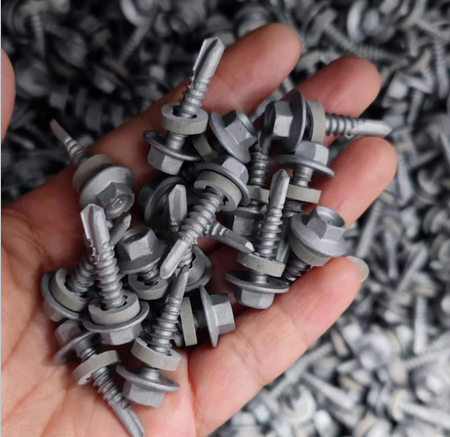Specifications for Self-Drilling Screws in China and Their Key Features
Understanding China Self-Drilling Screw Specifications A Comprehensive Guide
Self-drilling screws are a vital component in the construction, manufacturing, and assembly industries. These versatile fasteners eliminate the need for pre-drilling, allowing for efficient and effective fastening in various applications. In recent years, China has emerged as a prominent manufacturer of self-drilling screws, offering a range of specifications tailored to meet diverse industry needs. This article delves into the crucial specifications of self-drilling screws made in China, providing insights into their materials, dimensions, coatings, and performance characteristics.
Materials and Grades
The primary materials used for manufacturing self-drilling screws in China are carbon steel and stainless steel. Carbon steel screws are typically coated with zinc to enhance corrosion resistance, making them suitable for indoor applications or areas with low humidity. On the other hand, stainless steel screws offer superior resistance to rust and corrosion, making them ideal for outdoor applications or environments exposed to moisture.
The grade of the steel is also a significant factor in determining the screw's strength and durability. Common grades used in manufacturing these screws include 410 and 304 for stainless steel products, while carbon steel screws often fall under grades 8.8 or 10.9. Understanding the material grade is essential for engineers and contractors when selecting the right screw for specific applications.
Dimensions and Thread Design
Another critical aspect of self-drilling screw specifications is their dimensions. These screws come in various sizes, typically classified by their diameter and length. The diameter can range from 3.5 mm to 12 mm, while the length can vary from 13 mm to over 100 mm, depending on the intended use. It is important to select the appropriate screw size to ensure a secure and effective installation.
The thread design is also essential, as it determines how well the screw will hold in the material being fastened. Self-drilling screws feature specific thread patterns, including coarse and fine threads. Coarse threads are ideal for softer materials such as wood, while fine threads are better suited for harder materials, including metal. Additionally, some self-drilling screws have a unique thread design that facilitates quicker installation and enhances holding power.
Coatings and Finishes
Coatings play a crucial role in the performance and longevity of self-drilling screws. In China, several types of coatings are applied to enhance corrosion resistance and aesthetics. Common coatings include
china self drilling screw specifications

1. Zinc Plating This is the most common coating for carbon steel screws, providing a decent level of corrosion resistance for less demanding applications.
2. Hot-Dip Galvanizing This process creates a thicker and more durable zinc coating, making the screws suitable for outdoor use and in harsher environments.
3. Phosphate Coating Often used in combination with oil, this coating reduces friction during installation, making it easier to drive the screw.
4. Black Oxide This finish provides moderate corrosion resistance and is often used for aesthetic purposes.
Understanding the various coatings available allows buyers to select the best option based on environmental conditions and specific application requirements.
Performance Standards and Testing
To ensure quality and reliability, self-drilling screws manufactured in China are often subjected to rigorous testing. Compliance with internationally recognized performance standards, such as ASTM and ISO certifications, is crucial. Tests may include shear strength, tensile strength, and corrosion resistance, ensuring that the screws can withstand the demands of the application.
Conclusion
In conclusion, the specifications of self-drilling screws produced in China are integral to their functionality and application in various industries. By considering factors like material, dimensions, thread design, coatings, and performance standards, manufacturers and builders can select the appropriate screws to ensure safety and efficiency in their projects. As demand continues to grow, understanding these specifications will become increasingly important for anyone involved in construction or manufacturing endeavors.
-
Top Choices for Plasterboard FixingNewsDec.26,2024
-
The Versatility of Specialty WashersNewsDec.26,2024
-
Secure Your ProjectsNewsDec.26,2024
-
Essential Screws for Chipboard Flooring ProjectsNewsDec.26,2024
-
Choosing the Right Drywall ScrewsNewsDec.26,2024
-
Black Phosphate Screws for Superior PerformanceNewsDec.26,2024
-
The Versatile Choice of Nylon Flat Washers for Your NeedsNewsDec.18,2024










